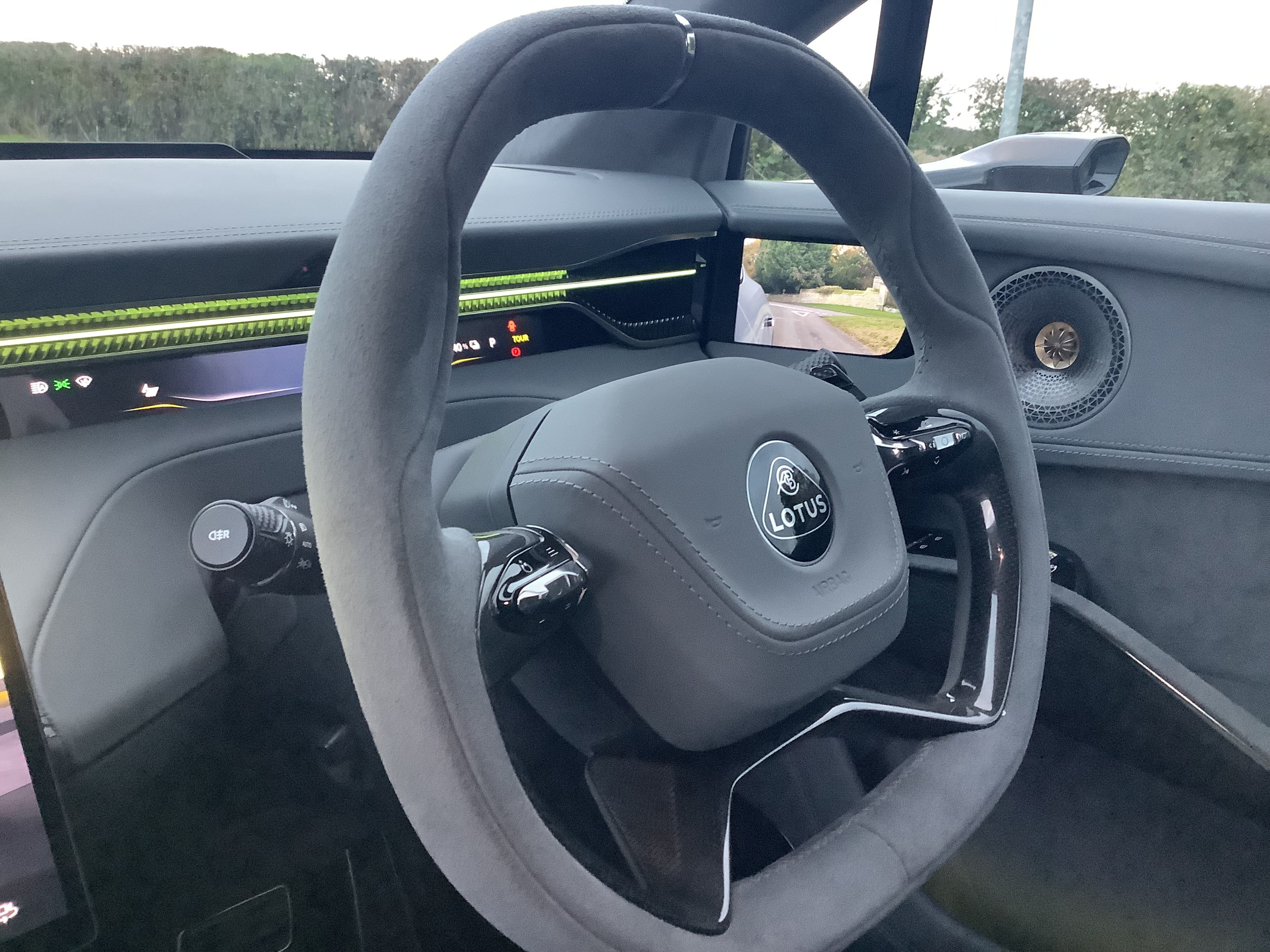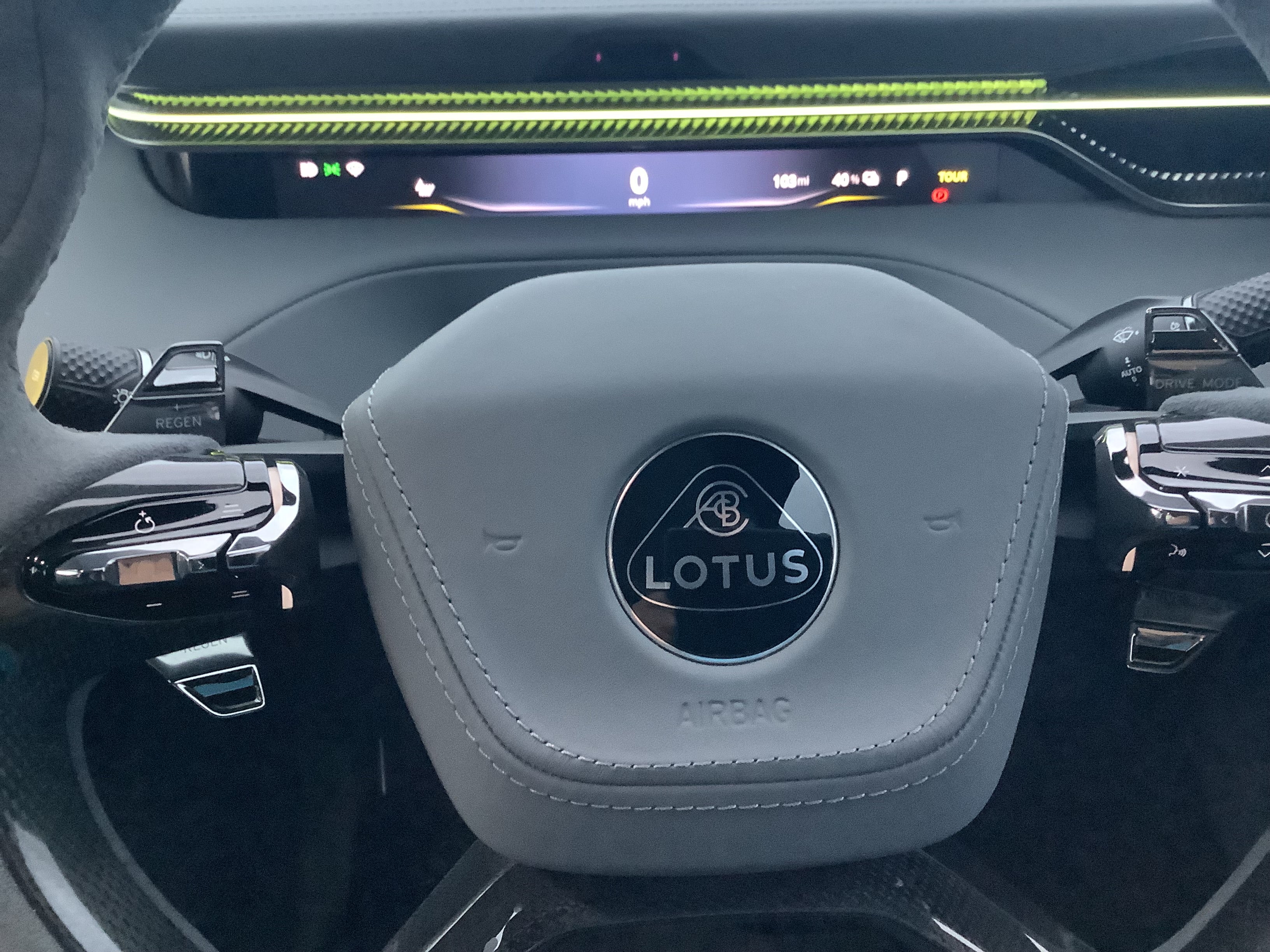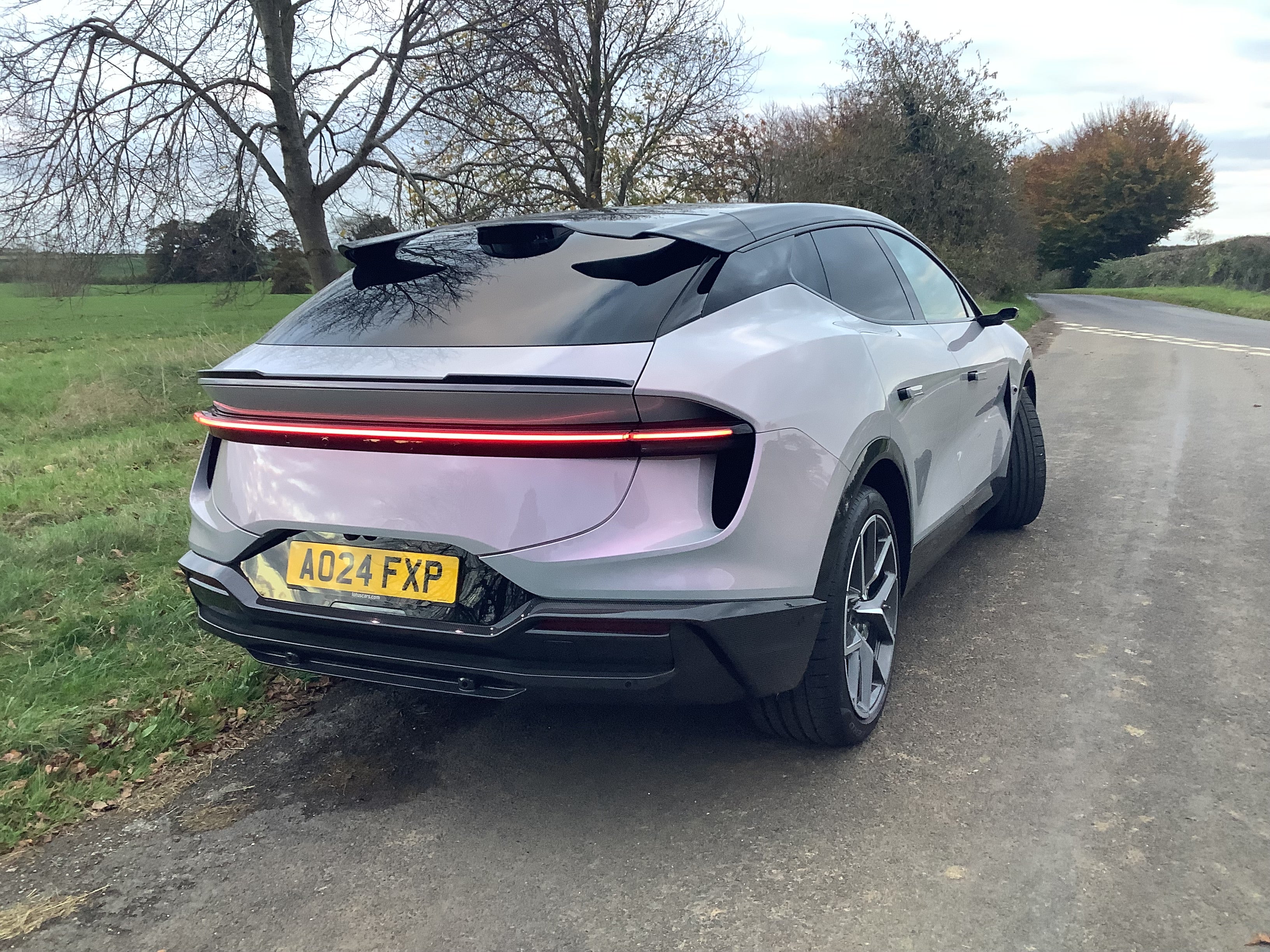
Looks like an SUV. Drives like a Lotus.” So goes the tagline for the Lotus Eletre, the company’s first foray into the rarefied world of what’s known as the “hyper-SUV”, and, mostly, it lives up to the billing.
Not having driven a Lotus for some years, and always with a sentimental attachment to their petite sports cars, the Eletre certainly looks like an SUV, and an especially bulky one with it – it dwarfs just about any other car on the road – Range Rovers and Tesla Model X included.
You may have issues with the size and, especially, weight of this new breed of automobile – battery packs are heavy – and object to the large footprint of this 2.7 tonne behemoth; but it is stylish with it.

You have to hand it to the Eletre’s stylists, they’ve clothed the Eletre in the most glamourous fashion, so blending the now-traditional look and stance of an SUV with the elan (if you’ll pardon the Lotus-related allusion) of a coupe, and, indeed, the spirit of a 1970s Lotus supercar.
We’ve certainly come a long way since Porsche decided to move into, indeed establish, this sporty SUV market with their “challenging” first Cayenne. The Lotus Eletre’s blend of assertive Italianate “face”, diffusers and spoilers (all functional at high speeds) are an aesthetic delight.
So not only does it drive like a Lotus (with reservations – see below), but it looks (a bit) like a Lotus too; or at least as much as a Cayenne “looks like” a Porsche, or the Aston Martin DBX looks like an Aston, or the Lamborghini Urus looks like a Lambo, or the Ferrari Purosangue like a Maranello original, to name a few.
OK, they’re not that beautiful, but these guys have to give their customers what they want if they are going to stay in business. Right?

My electric Eletre (no petrol or hybrid versions), was finished in “Blossom Grey”, a chromatic effect where the hue changes from shreds of grey to pink depending on how the light falls on the bodywork.
It’s intriguing and extrovert, almost camp, and it usefully softens the car’s “presence” on the road somewhat – less of a brute looking for trouble. Interesting to see, too, because these trick paint jobs go in and out of fashion every so often.
The Eletre R I gingerly tried is the top-of-the-range model, and combines those striking looks with extreme performance, extreme luxury and extreme technology.

I can’t claim that I pushed the near three tonnes of SUV to the limit on public roads, still less shoved it into “track” mode without stability controls, but I can freely attest that it will glide its way from standstill to 60mph in under 3 seconds, and, I can well believe, you will be at the top speed of 165mph without much further delay.
It is, in fact, the fastest electric twin-motor, all-wheel drive SUV in the world. That’s what you get with 900 horsepower at your disposal. Who says electric cars are dull? Tuned for performance rather than range, it should still do well over 200 miles on a single charge.
THE SPEC
Lotus Eletre R
Price: £121,305 (as tested; electric range starts at £90,805)
Propulsion: Twin electric motors, all-wheel drive powered by 109kWh battery
Power: 905hp
Top speed: 162mph
0-60mph: 2.9secs
Fuel economy: 2.2m/kWh
CO2 emissions: 0
As to “drives like a Lotus”, it’s certainly surprisingly agile, the software and air suspension doing an amazing job of keeping you on the highway and defying Newton’s laws of motion. It doesn’t, though, shrink around you on the road, and you’re always conscious of the sheer size of the thing. Maybe just as well, come to think of it.
The Eletre is built in China by Lotus’ parent Geely (also custodians of Volvo and the black-cab makers London EV Company), and it conforms to its homeland’s conception of a prestige vehicle.

So, the top R model is extremely long, with an emphasis on space in the rear, has four chair seats only, and – just to stress this is no workhorse – the rear seats won’t fold flat. That’s because the owner of this car isn’t the sort of chap who’ll be taking flatpack furniture home or lugging a buggy around.
He or she will have other vehicles and staff for such purposes, and the owner will rarely do any driving because that’s manual labour – ergo, the Eletre has a control touchscreen in the back, as you’d expect for £120,000. China, you see, is a communist country.
The Eletre R is a wilfully impractical vehicle – the first hatchback without folding rear seats since the FSO Polonez. (Lesser, more utilitarian and practical Eletre models are available).

The tech works pretty well, especially the cameras that substitute for conventional door mirrors, with screens on the leading interior edge of the doors – you get used to that easily enough and it works well in the rain and at night.
The click buttons on the steering wheel for entertainment and cruise control aren’t quite as pleasing, and generally, as with so many contemporary designs, you have to go through the menus on the touchscreen too much – old-school buttons and knobs would be better. I’d also have preferred a speedometer with a dial.
The Eletre R is also blessed with lightweight carbon fibre body trim, and four-wheel steering (essential for handling and getting such a long vehicle around a multistorey car park).
Strange to say, for such a package, the Eletre is something of a bargain by today’s standards – the range starts at £90,000, though with “only” 600 horsepower and rear wheel drive. But you can sleep, and dream, in that one too.







